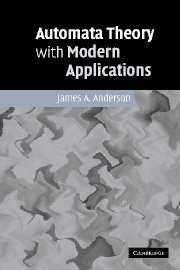1 - Introduction
Published online by Cambridge University Press: 02 December 2009
Summary
Sets
Sets form the foundation for mathematics. We shall define a set to be a well-defined collection of objects. This definition is similar to the one given by Georg Cantor, one of the pioneeers in the early development of set theory. The inadequacy of this definition became apparent when paradoxes or contradictions were discovered by the Italian logician Burali-Forti in 1879 and later by Bertrand Russell with the famous Russell paradox. It became obvious that sets had to be defined more carefully. Axiomatic systems have been developed for set theory to correct the problems discussed above and hopefully to avoid further contradictions and paradoxes. These systems include the Zermelo–Fraenkel–von Neumann system, the Gödel–Hilbert–Bernays system and the Russell–Whitehead system. In these systems the items that were allowed to be sets were restricted. Axioms were created to define sets. Any object which could not be created from these axioms was not allowed to be a set. These systems have been shown to be equivalent in the sense that if one system is consistent, then they all are. However, Gödel has shown that if the systems are consistent, it is impossible to prove that they are.
Definition 1.1An object in a set is called an element of the set or is said to belong to the set. If an object x is an element of a set A, this is denoted by x ∈ A. If an Objects in a set are called elements. Finite sets may be described by listing their elements.
Information
- Type
- Chapter
- Information
- Automata Theory with Modern Applications , pp. 1 - 22Publisher: Cambridge University PressPrint publication year: 2006
